dYdX Country Block Checker
Check if your country is restricted
dYdX blocks users from over 20 countries. This tool verifies if your country is restricted based on official reports and compliance data.
Enter a country name to check restrictions.
How dYdX Restrictions Work
dYdX blocks users from countries with strict financial regulations or OFAC sanctions. If your country is blocked, you'll see:
- Account status "Your account is in close-only mode"
- Restriction duration 7 days = full account block
- Geographic factors IP location, wallet history, device metadata
They call it a decentralized exchange. You trade directly from your wallet. No KYC. No middleman. But then you try to log in from Canada, the UK, or even just a hotel in the U.S. - and the platform slams the door shut. Welcome to dYdX: a crypto derivatives platform that claims to be decentralized, but only if you’re not from a country it doesn’t like.
At first glance, dYdX looks like the future of trading. It supports over 30 crypto markets - Ethereum, Bitcoin, Solana, Chainlink - and lets users trade perpetual contracts without surrendering control of their funds. No need to deposit into a central wallet. No custodian holding your assets. Just connect your MetaMask or WalletConnect, and you’re in. Sounds perfect, right? Except for one thing: dYdX blocks users from over 20 countries. And the way it does it isn’t subtle.
If you’re in a restricted country - say, the United States, United Kingdom, Canada, Iran, Cuba, or North Korea - and you try to open a new position, the platform won’t let you. Instead, you’ll see a red banner: "Your account is in close-only mode." That means you can only cancel orders or close existing trades. You can’t deposit. You can’t transfer. You can’t open a single new trade. And if you stay in this mode for seven days straight? Your account gets fully blocked. No trading history. No subaccounts. Just your Secret Recovery Phrase - and nothing else.
This isn’t a bug. It’s by design. dYdX isn’t a pure blockchain protocol like Uniswap or Aave. It’s a hybrid. The core trading engine runs on-chain, yes. But the frontend - the website you actually use - is hosted and controlled by dYdX Operations Services Ltd., a company registered in the British Virgin Islands. That’s the part that checks your IP address. That’s the part that blocks your wallet if it detects a restricted location. That’s the part that answers to regulators.
Behind the scenes, dYdX is run by two corporate entities: dYdX Trading Inc. in New York and the dYdX Foundation in Zug, Switzerland. These aren’t just legal shells. They’re the reason dYdX can even exist in the first place. Without them, the platform would be a true decentralized protocol - impossible to shut down, impossible to regulate. But that’s not what they chose. They chose to build a bridge between DeFi and traditional finance. And that bridge has toll booths - and they’re manned by OFAC.
The U.S. Office of Foreign Assets Control (OFAC) is the reason dYdX blocks countries like Iran, Syria, and North Korea. But it’s also why the U.S., Canada, and the UK are on the list. Even though these are Western democracies, they have strict anti-money laundering laws. dYdX doesn’t want to risk fines, asset seizures, or criminal liability. So instead of letting users trade freely, it enforces compliance through code - code that’s controlled by a company, not a smart contract.
And here’s the twist: some countries you’d expect to be banned? They’re still open. China. Russia. South Korea. Japan. Vietnam. These aren’t regulatory free zones. They have heavy crypto oversight. But dYdX hasn’t blocked them. Why? Because enforcement is inconsistent. Some governments don’t actively pursue DeFi platforms. Others have unclear rules. dYdX is playing a game of risk assessment - not principle. It’s not about decentralization. It’s about survivability.
This isn’t just about geography. It’s about identity. If you’re a U.S. citizen living in Berlin, dYdX still blocks you. If you’re a Canadian with a VPN, your wallet gets flagged. The platform doesn’t care where you are - it cares where you’re from. And that’s a centralized decision. No blockchain protocol could do this. No truly decentralized system would have the authority to lock your funds based on nationality.
There’s a deeper problem here: users are being misled. Marketing materials say “decentralized.” Videos show “trustless trading.” But the reality? You’re trusting dYdX’s legal team. You’re trusting their compliance officers. You’re trusting that they won’t change their mind tomorrow and block your country too.
Compare this to something like Uniswap. No one controls the smart contracts. No one can turn off your trades. No one can freeze your wallet. If you’re in the U.S., you can still use Uniswap. The protocol doesn’t care. dYdX, on the other hand, has built a system that looks decentralized - but only if you’re not from a place it doesn’t want to serve.
And the consequences? Real people get locked out. Traders who’ve held positions for months suddenly can’t add to them. Investors who moved to another country for work find their accounts frozen. Even people who just used a public Wi-Fi network in a restricted zone get caught in the net. There’s no appeal process. No customer service. Just a silent, automated block.
So what’s the solution? There isn’t one - not yet. dYdX isn’t going to drop its restrictions. The financial system still runs on borders, licenses, and sanctions. And dYdX needs those to stay in business. But you can be smarter about it. If you’re in a restricted country, don’t use a VPN to bypass it. That’s not just risky - it’s a violation of their terms. Your wallet could get permanently banned. And if you’re outside a restricted zone, remember: you’re still using a platform that treats others as second-class users.
The truth is, dYdX didn’t break decentralization. It revealed how hard it is to achieve. True decentralization means no one has the power to say who can and can’t trade. dYdX still has that power. And it uses it.
For now, dYdX offers the best derivatives trading experience in DeFi - if you’re allowed to use it. But if you care about open finance, ask yourself: is this really freedom? Or just permission granted by a corporation with a blockchain logo?
What Countries Are Blocked on dYdX?
dYdX doesn’t publish an official list, but based on user reports, compliance documentation, and regulatory filings, here are the countries and regions consistently blocked:
- United States
- United Kingdom
- Canada
- Iran
- Cuba
- North Korea
- Syria
- Myanmar (Burma)
- Crimea
- Donetsk
- Luhansk
- Iraq
- Libya
- Mali
- Democratic Republic of Congo
- Côte d’Ivoire
- Nicaragua
- Somalia
- Sudan
- Yemen
- Zimbabwe
Some of these are due to U.S. sanctions. Others are due to local regulatory pressure. But the pattern is clear: if a country is on OFAC’s sanctions list, it’s blocked. And if a country has strong financial oversight - even if it’s not sanctioned - dYdX may still avoid it to reduce risk.
Why Are Some Countries Allowed?
It’s not random. Countries like China, Russia, South Korea, Japan, and Vietnam are still accessible - even though they have strict crypto rules. Why? Because dYdX’s legal team has decided the risk is worth it.
China doesn’t allow crypto exchanges, but enforcement is patchy. Russian users are blocked on most platforms, but dYdX hasn’t acted yet - possibly because it’s harder to track IP addresses there, or because the platform doesn’t see Russia as a high-risk jurisdiction for AML. South Korea has heavy regulation, but dYdX doesn’t need a local license to serve users there. The same goes for Japan and Vietnam.
It’s not about fairness. It’s about cost. dYdX is choosing where to draw the line based on legal exposure, not ideology.

How Does dYdX Know Where You Are?
It’s not just your IP address. dYdX uses multiple signals:
- IP location - the most obvious one
- Wallet history - if your wallet has ever interacted with a U.S.-based exchange, it might get flagged
- Device metadata - language settings, time zones, browser fingerprints
- Third-party compliance tools - platforms like Chainalysis or Elliptic that track wallet behavior
Even if you use a VPN, dYdX can still detect anomalies. A wallet that suddenly connects from a new country after months of activity? That triggers a compliance review. And if you’re from a restricted country, the system will lock you down - even if you’re physically in a permitted region.
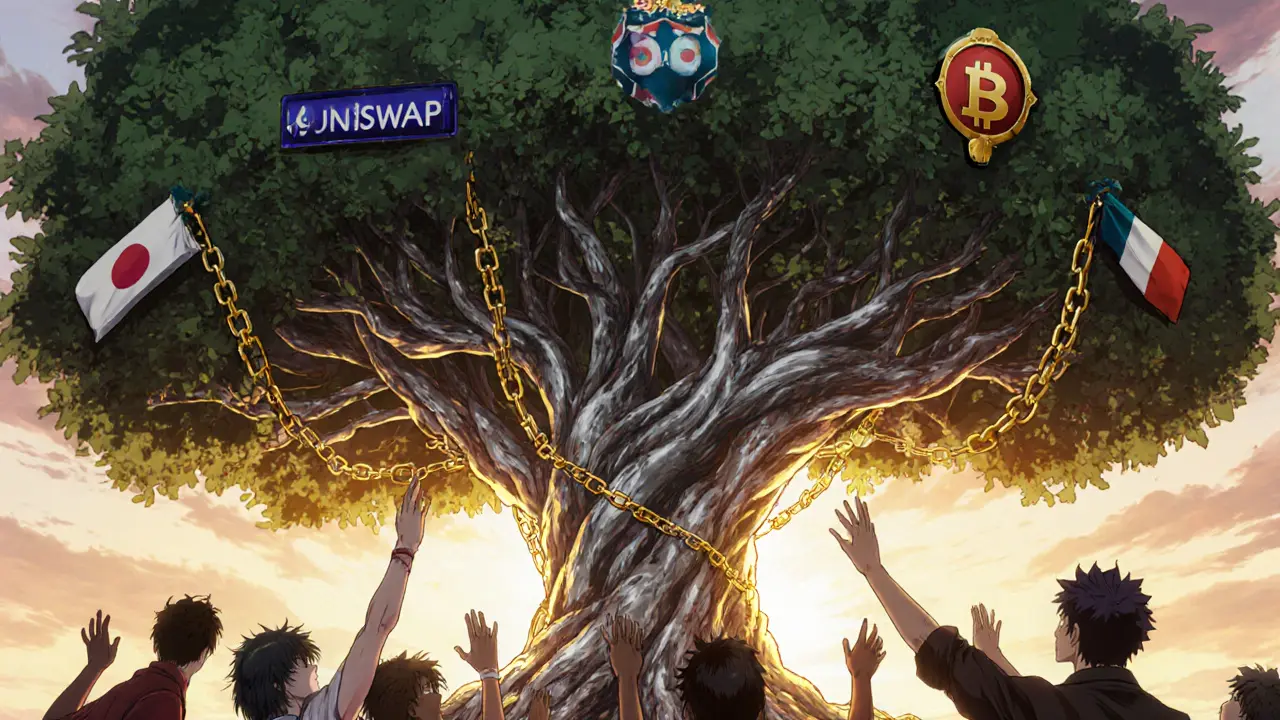
Can You Get Unblocked?
No. There’s no appeal process. If your wallet is blocked, you can’t contact support. You can’t submit documents. You can’t prove you’re not a U.S. citizen. The system doesn’t allow it. Your only option is to export your Secret Recovery Phrase and move your funds to another wallet - but you’ll lose your trading history and any open positions.
That’s the reality: dYdX doesn’t care who you are. It only cares where you’re from.
What’s the Bigger Picture?
dYdX isn’t alone. Most crypto platforms now have geo-blocks. Coinbase, Kraken, Binance - they all restrict users. But dYdX is unique because it markets itself as decentralized. That makes the contradiction sharper.
DeFi was supposed to be the end of gatekeepers. But dYdX proves that gatekeepers still exist - they just wear blockchain jackets now. The dream of open, borderless finance is still alive. But it’s not on dYdX.
If you want true decentralization, look elsewhere. If you want advanced derivatives trading with minimal friction - and you’re not from a restricted country - dYdX still delivers. But don’t call it decentralized. Call it compliant.


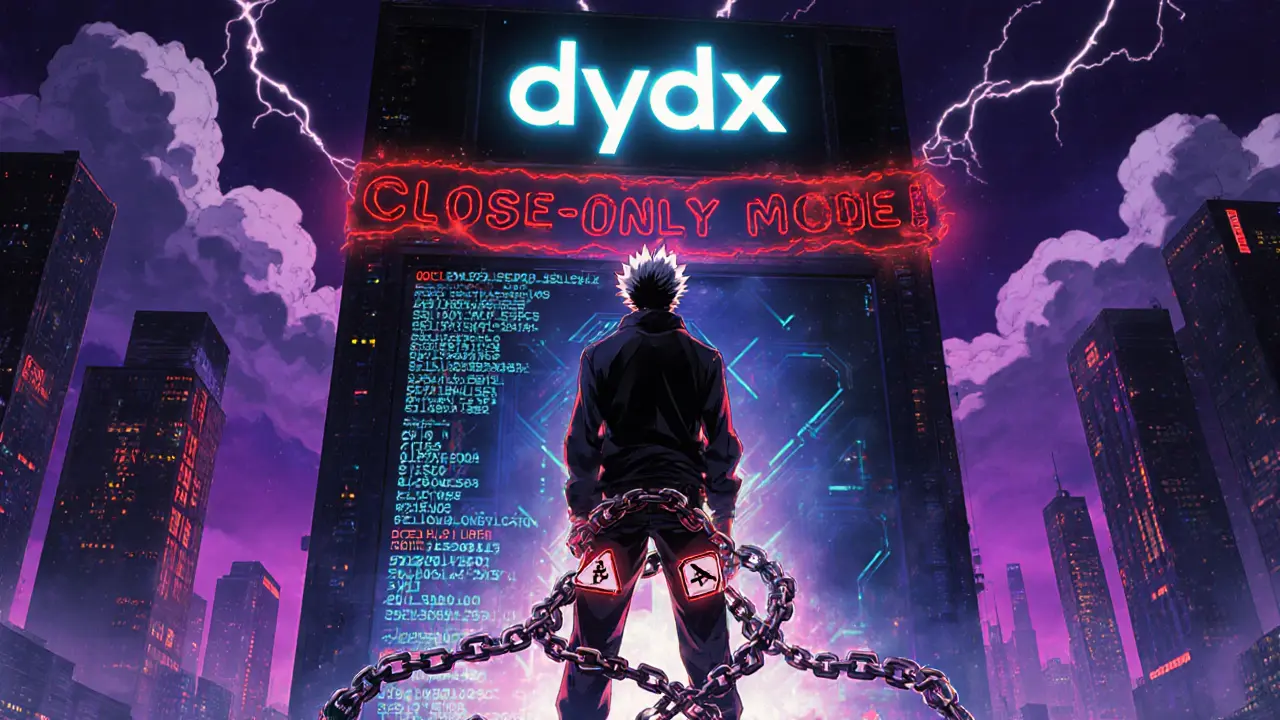
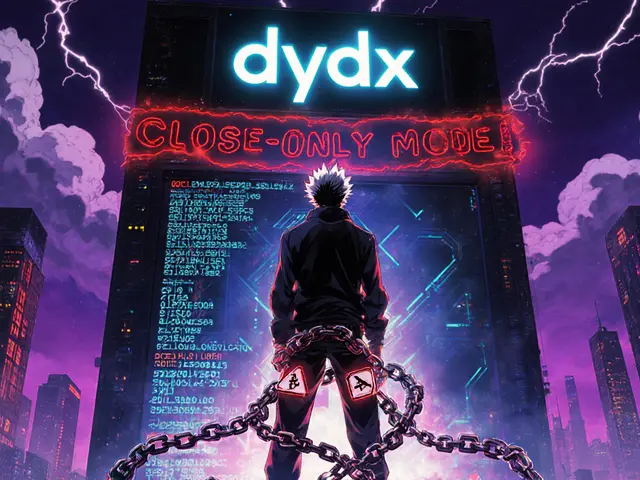


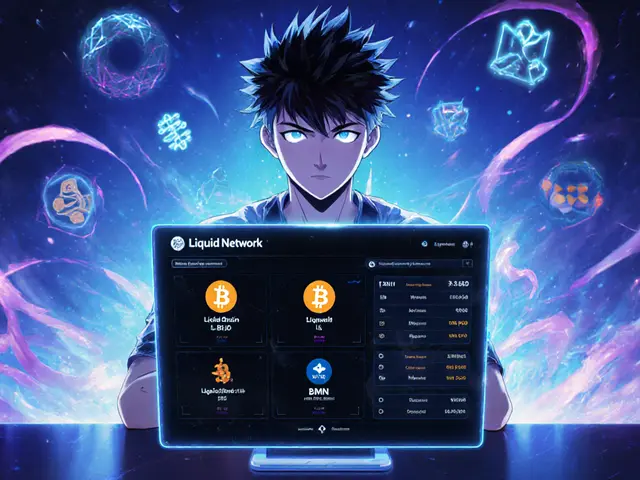

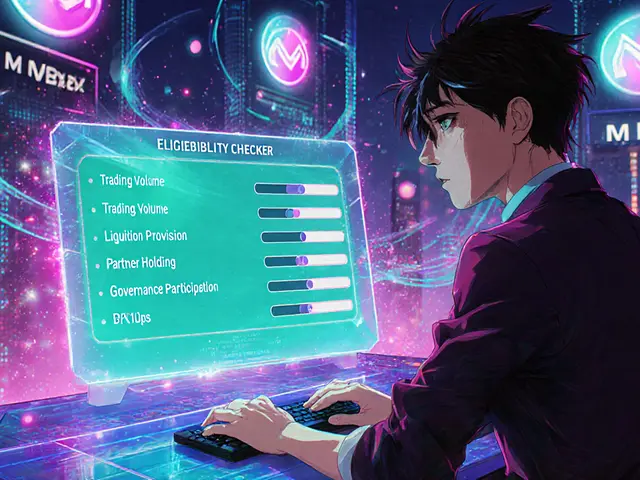
Comments (20)
angela sastre
October 24, 2025 AT 19:05 PMLook, I get why dYdX does this. No one wants to get fined $50 million by OFAC just because someone used a VPN from Tehran. But calling it 'decentralized' is just marketing spin. If your platform can block me based on my IP, it’s not decentralized-it’s just a fancy website with a blockchain sticker on it.
John Dixon
October 24, 2025 AT 20:55 PMOh wow. A crypto platform that doesn’t let people from the U.S. trade? Shocking. Next you’ll tell me banks still exist, and that the IRS hasn’t been replaced by a blockchain fairy. Of course it’s not decentralized-because if it were, the devs would’ve been arrested by now. Smart move, dYdX. You’re not a pirate. You’re a corporate lawyer with a wallet.
Claymore girl Claymoreanime
October 24, 2025 AT 23:21 PMLet’s be real-this isn’t about compliance. It’s about control. dYdX wants to be the Goldman Sachs of DeFi. They don’t want to empower users-they want to gate them, grade them, and charge them. Decentralized? Please. The only thing decentralized here is the hypocrisy.
Jennifer Rosada
October 25, 2025 AT 01:56 AMIt’s not that dYdX is hypocritical-it’s that the entire DeFi movement is a fantasy. You can’t have open finance without open accountability. If you want to trade derivatives, you accept the rules. Just like you accept traffic laws when you drive. This isn’t anarchism-it’s capitalism with better UI.
Steve Roberts
October 25, 2025 AT 04:40 AMEveryone’s mad because dYdX won’t let them trade from Canada? Bro, I live in the U.S. and I can’t even buy a decent coffee without showing ID. You want freedom? Go trade on a darknet forum. Or better yet-start your own chain. Until then, stop acting like a victim because a company won’t let you gamble with your crypto in a jurisdiction they don’t want to be sued in.
Will Atkinson
October 25, 2025 AT 07:05 AMI appreciate the honesty here. dYdX isn’t trying to be Bitcoin. It’s trying to be the bridge between Wall Street and Web3-and that’s a noble, messy, complicated goal. Yes, it’s centralized in places. But so is every major DeFi protocol that actually survives. Uniswap doesn’t have derivatives. dYdX does. And it’s still letting millions trade without KYC. That’s not perfect-but it’s progress.
Elizabeth Mitchell
October 25, 2025 AT 09:15 AMI’ve been using dYdX for a year. I’m in Germany. My wallet got flagged because I once connected from a hotel in Chicago. Took me three weeks to realize I couldn’t open new positions. No warning. No email. Just silence. I still have my funds, but I lost my trading history. That’s not decentralization. That’s digital feudalism.
Aniket Sable
October 25, 2025 AT 11:25 AMIndia still works on dYdX, but we have strict crypto rules too. Maybe they think we dont report? Or maybe they just dont care? I dont know. But I am happy i can trade. My friend in Canada got blocked. He was mad. But i told him, its not about country, its about who controls the keys. And right now, dYdX controls the keys.
Santosh harnaval
October 25, 2025 AT 13:35 PMReal decentralization means no one can turn off your trades. dYdX can. So it’s not decentralized. Simple as that.
Laura Herrelop
October 25, 2025 AT 15:46 PMThink about it-what if OFAC didn’t exist? What if dYdX was truly decentralized? Would they still block countries? Or would the blockchain just let everyone trade, and governments would have to chase individual wallets across the globe? Maybe this is all part of a bigger plan-letting the state think it’s in control, while the real power is in the code. Or maybe I’m just paranoid. Either way, I’m not using dYdX anymore.
Petrina Baldwin
October 25, 2025 AT 18:13 PMThey block Canada? That’s hilarious. My cousin in Toronto uses it every day. He’s got a VPN. So does everyone else. This is all just theater.
Ralph Nicolay
October 25, 2025 AT 20:40 PMIt is imperative to recognize that the operational architecture of dYdX constitutes a centralized governance model predicated upon jurisdictional risk mitigation. The deployment of IP geolocation, wallet history analysis, and third-party compliance tools confirms the existence of a centralized authority layer that supersedes the purportedly decentralized smart contract infrastructure. Consequently, the platform's branding as 'decentralized' is semantically inaccurate and potentially misleading to consumers.
sundar M
October 25, 2025 AT 22:50 PMBro, I’m from India and I love dYdX. I trade ETH perps every day. But I also know it’s not really decentralized. I don’t care. It works. I don’t need a utopia-I need a platform that doesn’t crash and lets me make money. If dYdX gets shut down tomorrow, I’ll move to another one. But until then? I’m here. And I’m not apologizing for it.
Nick Carey
October 26, 2025 AT 01:00 AMSo… they block the US but not Russia? That’s not compliance. That’s just lazy.
Sonu Singh
October 26, 2025 AT 02:10 AMmy friend use dYdX from usa with vpn, he got warn but not block yet. he said its not 100% foolproof. but if you trade big, they catch you. i think its more about volume than location. if you small trader, they ignore you. if you big, they flag you. thats my guess.
Alex Horville
October 26, 2025 AT 04:21 AMOf course they block Canada. That’s a socialist puppet state. They don’t even let you buy Bitcoin on Coinbase without paperwork. If you can’t handle a little geo-blocking, go back to your government-subsidized crypto ETFs. Real traders use dYdX-on their own terms.
Abby Gonzales Hoffman
October 26, 2025 AT 06:33 AMIf you’re frustrated by dYdX’s restrictions, don’t just complain-build something better. Create a true decentralized derivatives protocol that doesn’t rely on a single company’s compliance team. There are devs out there doing it. Support them. Use them. Vote with your wallet. The future isn’t in whining about who’s blocked-it’s in building tools that can’t be blocked.
ashish ramani
October 26, 2025 AT 08:41 AMIP blocking is weak. Wallet history is smarter. But even that can be fooled with new wallets. The real issue? dYdX is too valuable to be truly decentralized. That’s why they keep the reins.
Brody Dixon
October 26, 2025 AT 10:52 AMI used to trade on dYdX. I moved to the UK for work. Got locked out. No warning. No help. Just… gone. I didn’t rage. I just moved to a different platform. I still believe in DeFi. I just don’t believe in platforms that act like banks but call themselves revolutionaries. There’s space for both. But don’t lie about it.
William Burns
October 26, 2025 AT 13:01 PMIt is a logical fallacy to equate the absence of KYC with decentralization. dYdX employs a hybrid architecture wherein on-chain execution coexists with off-chain enforcement mechanisms. This is not a failure of decentralization-it is an adaptation to regulatory reality. To condemn the platform for its compliance measures is to misunderstand the nature of institutional adoption in blockchain ecosystems.